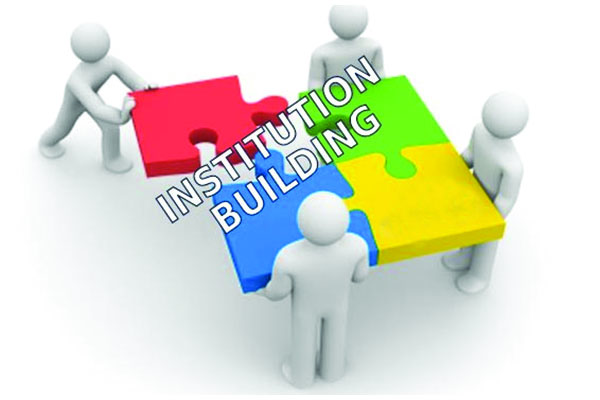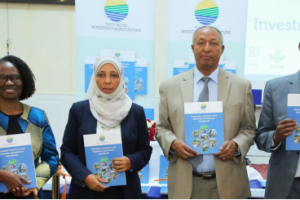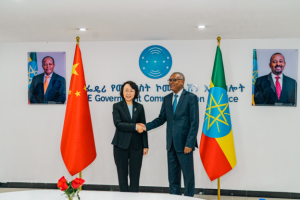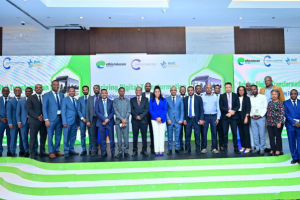
Following Prime Minister Dr Abiy Ahmed’s comment, at the conclusion of first anniversary of the reform, regarding the need for sustaining the changes, representatives of competing politicians urged for keeping the momentum of the current institution building.
Dr. Aregawi Berehe, who lived in exile for 43 years for political reasons, and current Chairperson of Tigrian Alliance for National Democracy (TAND), believes that Ethiopia has started the journey to democratization but needs to institutionalize the changes to make them sustainable. He says: “Ethiopia had never been led by a democratic system but it had been ruled by dictator individuals or groups who served own interests.
They ruled by law and never worked to ensure rule of law, but a nation requires multidimensional thinking that boosts pluralism that we have started practicing now.” All the interests, attitudes and emotions need to be included to benefit the entire people.
The democratic institutions required to take shape are those which do not compromise rule of law, equality and justice, Dr Aregawi states adding that the institution building is a process that cannot be achieved overnight but requires endurance and collaboration.
“And it must not be dependent on few change agents or groups rather share the responsibilities to all caring citizens.” There should be ethical guidelines that govern the changes in order to be inclusive and consistent with the purposes—and to fulfill the promises of development, peace and democracy.
“The ongoing reform is at its very infancy though it solved problems that piled up for centuries. And there is an aurora of hope to democracy,” Dr. Aregawi says.
However, he says: “Although the door is open, it requires hard work and cooperation to prevent potential forces that may toil to close it again. We all need to add efforts of institutionalizing the changes.”
He as well, recalled Emperor Hailesillassie’s quote that goes: “Country is a common asset…,” to call on all politicians for enhancing nation building commitment, focusing on the common good.
Tigistu Awalu, Chairman of Unity for Democracy and Justice Party, for his part agrees with the need for institutionalizing the ongoing democratic change listing the democratic institutions like House of Peoples’ Representatives, Election Board, Judiciary System, Prisons and Human Rights Commission in addition to the other Public Offices.
“All must be democratized first of all.” Appointees should serve neither their own interests nor their bosses but the Ethiopian people and the Constitution against the trend used to be since they were created and had been functioning in a narrowed political landmark.
The institutions must be lead by independent visionary personals within the frame of rule of law, Tigistu argued. There must be check and balance system between institutions to exercise democracy and rule of law but they should not be dominated by a single ideology or interest.
He elaborated, the House is controlled hundred percent by the ruling, Ethiopian Peoples’ Revolutionary Democratic Front (EPRDF). “Since almost all the government officials’ assignments were undemocratic that led the institutions to act undemocratically and unlawfully,” Tigistu says, “the ongoing law improvements must continue ensure ‘Rule of law’.
” To enhance the building of democratic institutions, he says both ruling front and all political parties have to reform themselves. Even more, Tigistu doubts, “I cannot say that there is a competent political party in Ethiopia as many have no clear vision, most have copied programs either from outside or others operating here. They must not be led by their Id rather need to be selfless and institutionalize the necessary transformations.”
He also smashed what he described as narrowly-crafted political thinking, “We need national thinking instead of localism. Minds of the politicians also have to be democratized; their thinking must be broadened and inclusive or universal.” “Before starting our discussion about the reform, I would like to see into the triggering factors,” says Fikadu Tessema, Head of Political Parties and Affiliates and Civic Societies Coordination Department with EPRDF Office.
To him, the reform has surfaced based on some essential issues such as ensuring fair resource utilization and fair political representation, democracy and the respect to human rights. Therefore, institutionalizing the reform requires understanding all these basic facts. The government has released thousands of political prisoners and allowed the political exiles to come home and participate in the affairs of the country freely and peacefully.
Political parties are also involving in the drafting of laws and parties’ covenants to guarantee the rule of law and increase their cooperation, he says. Besides, the government has assigned widely accepted personality to the helm of Election Board that is Birtukan Medeksa, he adds, hinting as this is an indication of strong institution building. It is when mindset transforms that institutional transformation becomes possible.”
The Ethiopian Herald April 12, 2019
BY DIRRIBA TESHOME





